You Can Borrow To Fund 2022 Budget – National Assembly Tells Buhari
Members of the National Assembly gave their nod for more borrowing by the executive arm of government to fund the 2022 budget laid by President Muhammadu Buhari before a joint session of the federal legislature yesterday.
Tagged Budget of Economic Growth and Sustainability, the president assigned defence and internal security priority in a N16.39 trillion appropriation bill that requires N6.26 trillion to fund the deficit.
While presenting the budget to them, Buhari who arrived at the House of Representatives Chamber where the joint session was held at about 12:04pm said it would be the last budget his administration would be implementing fully.
At the presentation that lasted for an hour, from noon to 1:05pm, Buhari said allocations to MDAs in the budget were guided by the strategic objectives of the National Development Plan of 2021-2025.
According to him, the plan includes diversifying the economy with robust MSME growth, investing in critical infrastructure, strengthening security and ensuring good governance, enabling a vibrant, educated and healthy populace, reducing poverty as well as minimising regional, economic and social disparities.
He said defence and internal security would continue to be the top priority for his administration.
“We remain firmly committed to the security of life, property and investment nationwide. We will continue to ensure that our gallant men and women in the armed forces, police and paramilitary units are properly equipped, remunerated and well-motivated,” Buhari said.
On parameters and fiscal assumptions of the 2022 appropriations bill, Buhari said the same was based on the 2022-2024 Medium Term Expenditure Framework and Fiscal Strategy Paper.
He said oil price benchmark was pegged at 57 US Dollars per barrel; oil production estimate at 1.88 million barrels, inclusive of Condensates of 300,000 to 400,000 barrels per day); exchange rate at N410.15 per US dollar, and projected GDP growth rate at 4.2 percent and 13 percent inflation rate.
He stated that based on these fiscal assumptions and parameters, total federally-collectible revenue was estimated at N17.70trillion in 2022.
President Buhari noted that while total federally distributable revenue is estimated at N12.72trillion, total revenue available to fund the 2022 federal budget is estimated at N10.13trillion, an amount which includes grants and aid of N63.38 billion, as well as the revenues of 63 government-owned enterprises.
According to him, oil revenue was projected at N3.16 trillion, non-oil taxes estimated at N2.13 trillion and FGN independent revenues projected at N1.82 trillion.
He said of the total expenditure of N16.39 trillion proposed for the federal government in 2022, N768.28 is for statutory transfers of N768.28billion, while N6.83 trillion is for non-debt recurrent costs and N4.11 trillion for personnel costs.
Others are N577billion for pensions, gratuities and retirees’ benefits; N792.39 for overheads; N5.35 trillion for capital expenditure, including capital component of statutory transfers; N3.61 trillion for debt service; and N292.71 billion for Sinking Fund to retire certain maturing bonds.
He however emphasised that the expected total fiscal operations of the federal government would result in a deficit of N6.26trillion, an amount representing 3.39 percent of estimated GDP which, according to him, is slightly above the 3 percent threshold set by the Fiscal Responsibility Act 2007.
In addition, the president disclosed that efforts were being made by his administration to partly support the realisation of fiscal projections by reviewing the current tax and fiscal laws to produce a draft Finance Bill 2022.
The Senate president, Ahmed Lawan, who is also the chairman of the National Assembly, said the National Assembly understood why the country needed to borrow, adding that it was the reason they have been approving the loan request.
He stated: “Your Excellency, generating and collecting revenues have remained major challenges in our quest for development. The recent efforts by the National Assembly as well as the Executive to challenge the revenue generating agencies is a step in the right direction.
“Equally important is the recent position taken by the Legislature and the Executive to insist on zero allocation for Ministries, Departments and Agencies (MDAs) that fail to remit/upload their revenues for the 2022 Appropriation. This saw an increase in the contribution of the MDAs by over N400 Billion. It is my view that MDAs can contribute to the Federation account much more than that. This policy should be expanded and deepened to cover more MDAs.
“Mr President, the need to enhance revenue generation and collection cannot be overemphasized. The level of budget deficit is high, and both the Legislature and the Executive should work to reduce this deficit through the availability of more revenues.
“Mr President, we understand that due to paucity of revenue, the Federal Government has to resort to raising funds from foreign and domestic sources to provide infrastructure across the country. That is why the National Assembly approved the requests for borrowing. The Commitment of the Federal Government in providing infrastructure across the country means that the funds must be raised one way or the other. Government should also explore other sources of funding for its projects in order to reduce borrowing.
“Mr President, let me congratulate the National Assembly and the Executive for the passage of the Petroleum Industry Bill and assent to enact the Petroleum Industry Act 2021. The ninth National Assembly broke the jinx of the non-passage of the PIB over the years and Your Excellency, you have achieved the feat of assenting to the Bill. Let me also commend you for starting to implement the PIA immediately, with nominations of qualified Nigerians to serve on the Petroleum Down and Midstream Regulatory Authority and Petroleum Upstream Regulatory Commission.
“Mr President, the security of lives and property of Nigerians is still a challenge. The National Assembly is ever willing to work with the Executive arm of Government to continue to work for better security for our citizens. The recent changes in the leadership of the armed forces are a clear testimony of the collaboration between the Legislature and the Executive to overhaul the security architecture for better outcomes in our fight against the myriads of security challenges”.
Also, the Speaker of the House of Representatives, Hon Femi Gbajabiamila, said the House would in conjunction with the Senate and the executive alter the proposed budget where necessary.
The Speaker, who explained that several important resolutions of the House ought to be reflected in the proposed document, said where the resolutions have not been included, the House would ensure such inclusion in the final version.
“Over the past year, the House has passed several important resolutions relating to healthcare, primary education, and national security that require actual funding. Where these resolutions have not been included in the Appropriation Bill, the House will work with the Senate and with the Executive to see to it that the final version of this Appropriation Bill includes necessary allocations to implement these resolutions and give full effect to the best wishes of the House,” he said.
After the presentation of the budget by the president, the chairman, Senate committee on Finance, Solomon Olamilekan Adeola (APC Lagos) said it was the first time the budget size stood at N16.39 trillion as contained in the MTEF document that was passed by the National Assembly.
“I believe it is a budget of hope. That defence and internal security will take the front burner of the budget. All other sectors will also be given consideration to ensure that we have a budget that will take us out of our present challenges,” Adeola said.
Other lawmakers who spoke with LEADERSHIP, including Opeyemi Bamidele (APC Ekiti); Uba Sani (Kaduna Central); Ishaku Abbo (APC Adamawa); Abdullahi Adamu (APC Nasarawa); Ayo Akinlerule (PDP Ondo) and Hon Gudaji Kazaure representing Kazaure/Roni/Gwiwa/Yankwashi federal constituency of Jigawa State in the House of Representatives said it was necessary for the government to borrow and fund the budget deficit.
Experts Warn Against Rising Debt, Fault Oil Production Target
Reacting to the budget presentation, the CEO of Centre for the Promotion of Private Enterprise (CPPE), Dr. Muda Yusuf, said the 2022 budget of N16.39trillion is 25 percent higher than the 2021 budget proposal, which was N13.08 trillion.
Yusuf noted the budget assumptions as follows: Oil price benchmark of $57 per barrel; Oil production of 1.88 million barrels per day; Exchange rate of N410.15 per dollar; GDP growth rate of 4.2 per cent; and inflation rate of 13 per cent.
Accordingly, he said, “The foregoing assumptions are generally realistic but for two of the assumptions. The first is the exchange rate assumption which does not reflect the current exchange rate realities.
“The second is oil production. Oil output had continued to suffer setbacks as a result of security challenges faced by oil producing companies. The companies have also been contending with numerous policy and regulatory challenges.”
Comparing the previous budgets, Yusuf said, “The major worry around the 2022 budget is that of fiscal sustainability, especially in the context of recent trends of weak revenue performance. Over the years, revenue performance had consistently fallen significantly below targets.”
He noted that the 2022 revenue outlook may not be different as the 2022 fiscal year would be characterised by high risk that the deficit would exceed the budgeted threshold, while the debt sustainability challenge would persist.
“Debt service would continue to exert severe pressure on government finances; and CBN financing of fiscal deficit would likely persist. This has serious consequences for inflation because of the profound impact on money supply growth,” he added,
He explained that the capital budget will be financed entirely from borrowing, saying the Finance minister already hinted that government revenue could barely cover recurrent expenditure and debt service.
Also, an energy expert and managing director, Credent Investment Managers Ltd, Ibrahim Shelleng, said the 1.88mbpd production benchmark may be a little ambitious.
He however said oil production figures have always been overestimated in recent budgets and it is often hoped to be augmented by the price differential.
Shelleng maintained that the $57 benchmark is reasonable given that oil prices are currently above $70 and predicted to rise even further before the end of the year as economies open up post-COVID-19 and demand for oil is increasing.
“But it’s worth noting that lack of investments into the upstream sector may also limit production. Investors have not been able to recoup investments made before COVID-19. This has caused the current supply shocks driving up oil prices,” he said.

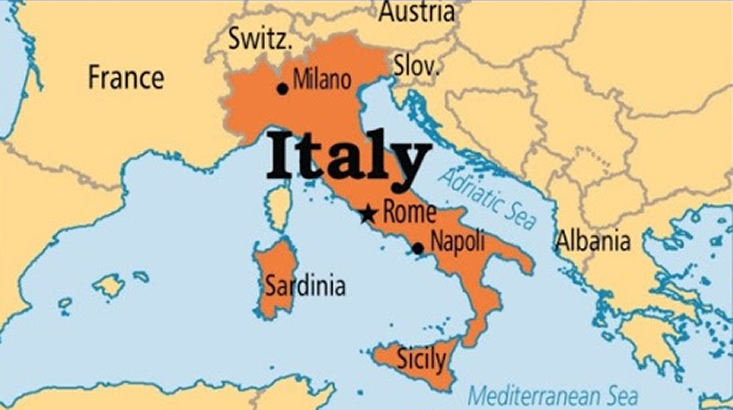
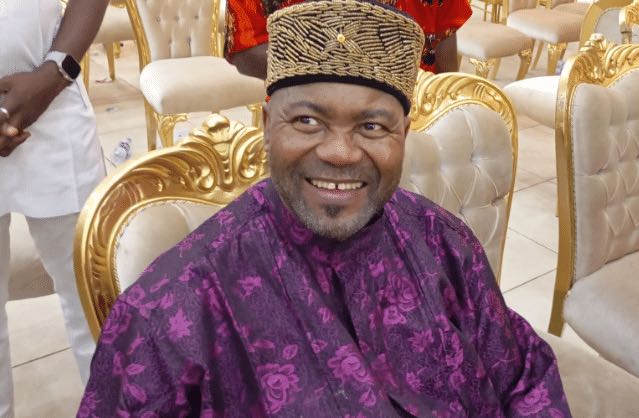




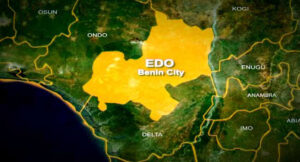
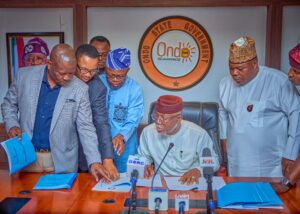
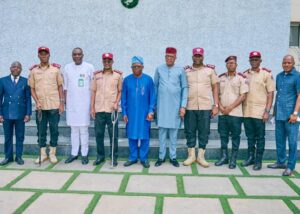
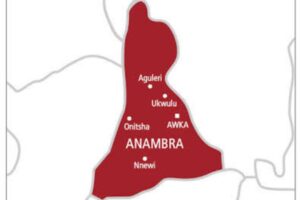

Post Comment